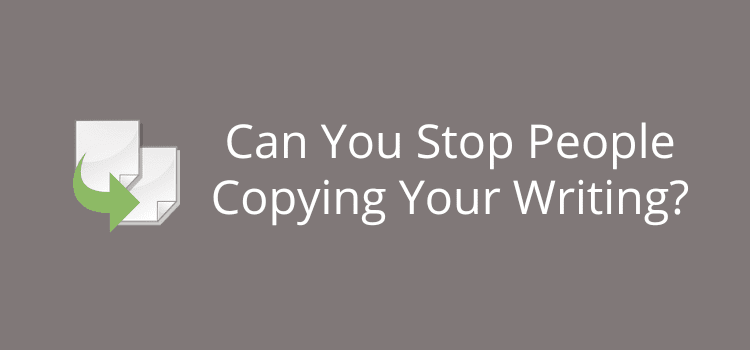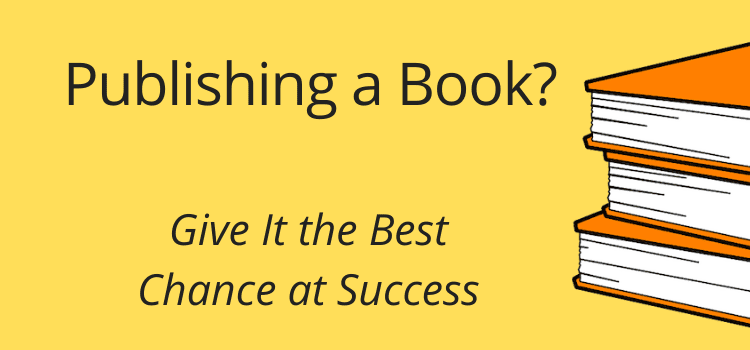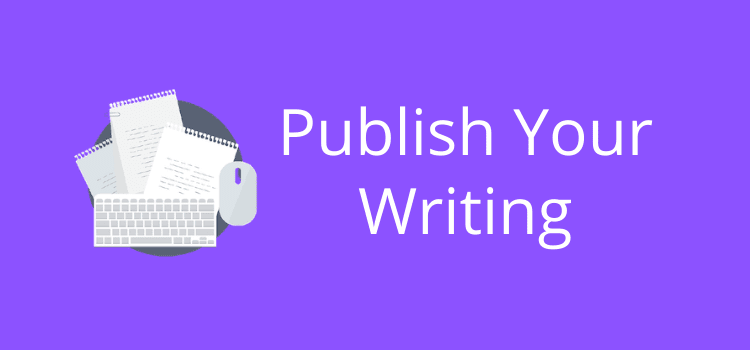
The bad news bears are always loud in their opinions when comparing self-publishing vs traditional publishing.
It usually reads that traditionally published books are winning the publishing war and dominating market share against ebooks, especially over self-published ebooks.
While rarely newsworthy, these opinion articles are frequent. They all beat a similar drum that the self-published ebook market is dying.
But perhaps it is worth taking a step back and thinking about who writes these stories. Who do they work for, and why are they writing these articles denigrating self-publishing?
Who are the big five publishers?
A quick look at the owners of the Big Five book publishers will tell you exactly why these stories are being written so often and published online and in print news media.
It is because the five biggest traditional book publishers are all owned by companies that have either newspapers or television networks within their group. They all want to protect their own.
Hachette Book Group – Owned by the French media company, Lagardère.
HarperCollins Publishers – Owned by the US media company, News Corp.
Macmillan Publishers – Owned by the German media group, Holtzbrinck.
Penguin Random House – Owned by the German media company, Bertelsmann.
Simon and Schuster – Owned by the US media company, CBS Corporation.
When one reads a headline such as ‘There’s Bad News for E-Readers — And Great News for People Who Still Love Actual Books,’ it makes one think that the ebook market is dying.
Or from the Guardian, ‘The ebook is dead. Long live the ebook’ sounds even more dramatic in its predictions.
But then a story pops up that is conveniently ignored by those writing to protect their employers’ bottom line. ‘Apple says iBooks adding 1M new users a week since being preinstalled on iOS 8’.
What’s going on with ebooks?
By pulling bits and pieces from media articles, some points are worth interpreting.
On many occasions, I have read reports such as this of declining ebook reader sales as proof of the death of ebooks.
But this is misinformation or spin by traditional publishing houses that would like it to be true, such as the Big Five or bookstore chains that make their money from selling Big Five books.
As this article in Gizmodo rightly points out, ebooks are still doing very well, and it makes this exact point:
“Are eBooks declining? No. These misleading headlines all show either a lack of comprehension or an anti-eBook agenda. If a market is dying, it’s dedicated eReaders, not eBooks, and those are far from the same thing.
Electronic books are going nowhere. They are just not increasing sales at the astronomical rate that they were as people switched to digital.
People are increasingly reading on phones and tablets, which have much better screens than when the Kindle first launched, and dedicated eReaders have become a niche device for dedicated readers.”
The simple fact of the matter is that dedicated ereading devices are not being replaced, or even now purchased in the first place by readers of ebooks.
In fact, sales of dedicated ereaders such as Kindle are dying fast.
Ebooks can now be read on many different devices, whether they are tablets, phablets, phones, or laptops.
Using the decline in Kindle device sales as proof of the death throes of ebooks is a complete distortion of the truth.
Readers are buying ebooks to read on a wide range of devices.
The market is growing, as this article about the UK market confirms.
‘Long live the ebook – it’s a champion of the printed word.’
Self-published ebooks are winning
Don’t believe the bad news bears when they peddle their sour grapes articles about self-publishing vs traditional publishing and impending ebook and self-publishing doom.
They are writing for their media masters.
The big five in the publishing industry didn’t want ebooks, Amazon’s Kindle, and self-publishing from day one.
But ebooks and self-published authors are doing just fine.
Self-published authors have learned how to perfect ebook formatting and quality cover design to compete with any publisher.
They have even grabbed a small foothold for print book sales.
While it is hardly ever reported and very difficult to prove as Amazon is so secretive, I would be prepared to guess that self-publishers now have a very sizeable chunk of the growing worldwide market in ebook sales.
You only need to take a look at the Kindle Store and Kindle Unlimited to see the signs of success.
Self-publishing platforms like Amazon KDP and KDP Select, as well as Barnes & Noble and Apple iBooks, have made it easy for authors to publish ebooks with total creative control.
The ebook war between self-publishing vs traditional publishing is an odd beast.
One side is still fighting, while the other has probably already quietly won.
But there is no need for self-publishers to write articles and denigrate traditional publishing.
All you need to do is write and sell your books.
Readers are making the decisions now
It is clear that readers see little difference between self-publishing vs traditional publishing. If it’s a good book, they’ll buy it.
The New York Times bestseller list used to be the gold standard. But today, it’s the Amazon bestseller list that is the most influential when it comes to selling books.
For new authors, you need to understand how readers find the books they buy and read.
This is the question that all traditional publishers can answer in an instant, but one that many self-publishers can’t.
However, self-publishers who know the answer are making huge inroads into the publishing world market.
The answer, of course, is money—business investment in production, marketing, and advertising.
Yes, I can hear the shrieks already. But the days of self-publishing a book for free and hoping that your Twitter and Facebook followers will dive in to buy it are long gone.
Your few hundred or a couple of thousand friends and followers is a very small potential market compared to over one and a half billion people available via Facebook and Amazon Ads.
Traditional publishing is big business, and like any other business, it involves time, expenses, and investment, which are used to create a return. ROI, or return on investment.
But how many self-published authors think about business plans and ROI?
A few do, and they are the ones who are succeeding and building self-publishing businesses and sometimes new publishing companies.
Follow the publishing money
Times have changed dramatically, and self-publishing is now a huge business.
Authors who understand how ROI works and why it is fundamental to any business spend money on production, advertising, and promotion.
Investments made in editing, cover design, copywriting, promotion, advertising, email campaigns, software, website design, and site maintenance are all base business expenses, which will hopefully create a return.
Hopefully? Yes, because business is always about risk and return, and doubly so in publishing.
As the most recent Author Earnings report shows, though, self-published (or Indie) authors are doing very well, especially on Amazon.
But perhaps only those authors who understand how to set up, operate, and promote self-publishing as a profitable business.
You get what you pay for in publishing
An author asked me this question recently, and I tried to help.
“What more can I do to sell my book? No one’s buying it.”
“Do you have a blog?”
“No.”
“Do you run any book promotions?”
“No.”
“Do you advertise your book?”
“No way! It costs money! I sometimes add a post to Facebook or Twitter with a link to my book.”
“What hook do you use?”
“What’s a hook?”
“A reason they should look at your book.”
“I don’t know. I just add a link to Amazon.”
“How else do you promote your books?”
“Amazon does that, doesn’t it?”
“No. It only lists your book for sale. Along with 5 million others.”
“Well, Amazon should do more for me.”
A book will not sell itself, and nor will anyone else sell it for you.
Writing and self-publishing a book is easy, but selling it is not.
Expecting to make money from publishing a book without investment in time and money will never lead to success.
You don’t need to break the bank
You don’t need to spend a penny to self-publish, and if this is what you want to do, that’s fine.
Enjoy the fact that you have written and published a book. But don’t expect to sell many copies.
There are over 6 million ebooks on Kindle, and most are published in hope without any kind of plan, let alone a business plan.
But if you want to rise above the pack, even a small investment will help gain traction and sales.
Without a doubt, the most essential outlay is a fantastic book cover. This small expense alone will lift a book above the millions of awful homemade covers.
A great cover has to suit the genre of the book and look appealing as a small thumbnail image. This is what potential readers see first, so it must be eye-catching.
Okay, an editor is expensive, but paying a reliable and accurate proofreader is not.
You’re selling a book, so make sure it’s the best product possible that you can bring to the market.
Pay for affordable book promotion
Advertise and promote using every free means you can find. But keep in mind that free means typically a very low click-through and conversion rate.
Advertising on Facebook and Amazon PPC ads is not very expensive.
Set a small budget of say $20 – 25.00 per month for a few months, and alternate between the two. But make sure you target your ads to an appropriate niche audience.
You will rarely sell a spicy romance novel to a lover of World War Two historical fiction.
To get the best value from online advertising, focus on a very narrow and defined audience because then you won’t be wasting money on clicks from ‘happy clickers’ who have no real interest in your book but will click on anything.
A self-hosted blog is essential for so many reasons, but the most important one is to use it to build a substantial list of email subscribers.
Successful online marketing is almost always based on old-fashioned email.
It’s how publishing works
Forget the dreams and fantasies about publishing a book. Most new books fail to sell.
However, in reality, if you prepare a plan for your self-publishing business and understand who your potential readers and book buyers are, you can sell ebooks and make money.
But you often need to spend a little to make a little.
If you have your mind set on getting up near the top of the pyramid, well, it’s possible.
Be prepared to make a considerable investment in time and to invest a little money. But you never know.
But don’t forget that if self-publishing is not for you, you can still take the traditional publishing route and try to find an agent and major publisher.
While self-publishers can do well with ebooks, it is still the traditional route that dominates the print book market.
Writing a book is the easiest part of the publishing process.
There are pros and cons to both ways you can publish a book, but neither way is easy.
Related Reading: Publishing A Book? Give It The Best Opportunity For Success




Thanks for the reality check. Can’t hear it enough!